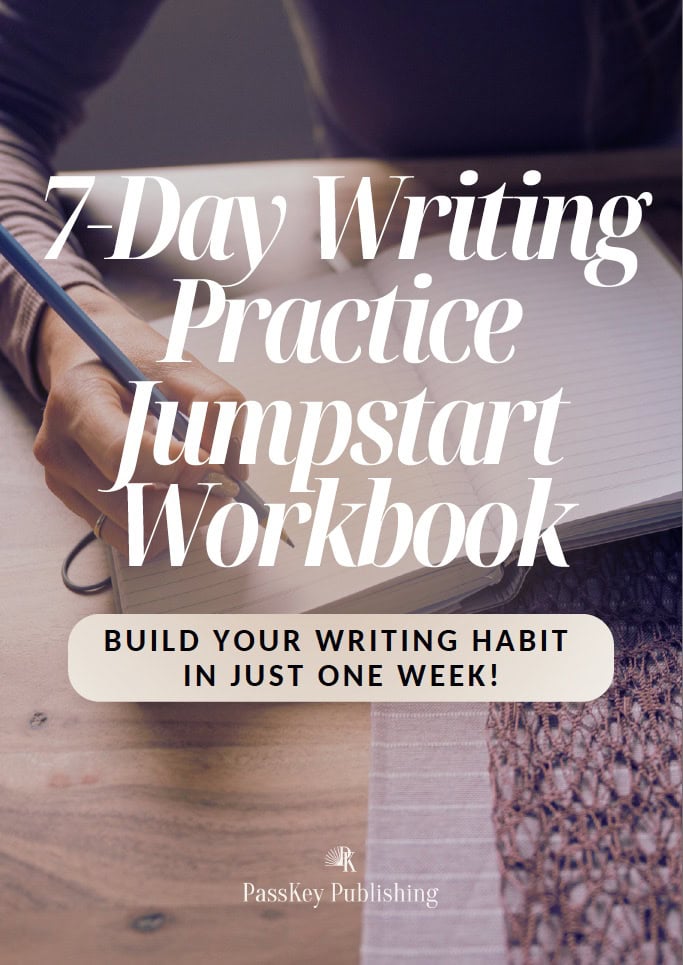Struggling to finish your book? Here’s why strategy matters.
Have you ever found yourself endlessly perfecting a scene, only to realize that the story isn’t moving forward? It’s a common trap for writers—but there is a way out. The key lies in finding the right balance between improving your craft and embracing strategic goals for your writing.
Balancing Craft and Strategy in Writing
While developing your craft is a lifelong journey, focusing solely on perfecting every scene can prevent you from finishing your book. Writing requires a balance: crafting a compelling story and having a strategy to complete it. When craft concerns—like perfecting a setting or dialogue—start to slow you down, it’s time to switch gears and prioritize forward momentum.
This is where a strategy-driven approach becomes essential. Focus on getting the words on the page, even if it means leaving notes to revisit certain aspects later. By moving forward, you’ll keep your project on track, knowing that revisions are where deeper craft refinement happens.
Consider writing challenges, which encourage writers to hit daily word count goals and complete drafts within a certain timeframe. This focus on output over perfection exemplifies how strategy can propel you to the finish line. Adopting similar practices—such as setting word count targets, using timed writing sprints, or breaking projects into manageable goals—can help you maintain momentum and ultimately achieve your writing goals. Remember, your first job is to get the words out.
How to Identify When You’re Stuck on Craft (and What to Do About It)
It’s easy to get caught in the weeds of perfecting every word, but recognizing when craft is slowing your progress is the first step toward breaking free. Here are five questions to help you identify whether you’re stuck on craft:
1. Am I struggling to move past a specific scene, description, or dialogue because it doesn’t feel right?
– What to Do: If you find yourself tweaking endlessly, it’s time to move on. Jot down some notes on why the section doesn’t feel right to refer to later (for example, what character feelings you’re trying to convey to the reader through the dialogue).
2. Have I spent more time researching or refining a single detail than actually writing?
– What to Do: Give yourself a time limit for research or detailed work. Once the timer is up, write with what you have. You can always return to research gaps later.
3. Do I feel overwhelmed by trying to make every sentence or scene perfect?
– What to Do: Shift your focus to strategy. Set tangible goals, such as writing a certain number of words per day or completing a chapter, and prioritize hitting that milestone.
4. Do I feel unproductive because I’m fixating on specific details or perfecting every element?
– What to Do: Remember that writing is a process of layering. Your first draft doesn’t need to be perfect; it just needs to exist. Focus on creating a rough version that you can refine later.
5. Have I met any tangible writing goals recently, or has my progress stalled?
– What to Do: Take stock of your recent output. If you’ve been stuck, reset your goals. Break large tasks into smaller, more achievable milestones to regain momentum.
Practical Tips for a Strategy-Based Approach
Once you’ve identified that craft is getting in the way, here are some more practical strategies to help you move forward:
– Leave Placeholders: Instead of getting stuck on perfecting a scene or description, leave a quick note to revisit later (e.g., “add sensory details here” or “enhance dialogue”). This keeps you moving while ensuring you don’t lose track of areas you want to refine.
– Timed Writing Sprints: Use a timer to write without interruption or editing for a set period, such as thirty minutes or an hour. The goal is to prioritize output and keep your creative momentum going.
– Use Accountability Tools: Whether it’s a writing group, a coach, or a writing partner, having someone to check in with can help you stay on track and maintain focus on your larger goals. Working with a writing coach is especially valuable, as they can offer personalized plans to help you navigate the balance between craft and strategy. They provide accountability, structure, and targeted feedback, ensuring you stay on track to meet your goals without sacrificing forward progress.
– Prioritize Progress Over Perfection: Remind yourself that a completed draft—no matter how imperfect—is far more valuable than an unfinished masterpiece. Embrace the idea that refining your story’s craft happens most effectively during the revision process, once the full draft is down. Furthermore, writing itself is one of the best ways to improve your skills, as consistent practice allows you to learn and grow.
So, when needed, shift your mindset to strategy and remember that meaningful progress comes through consistent action. Keep writing, keep moving forward. The words you put down today will guide you toward the story you want to tell.
Join the Author’s Atlas for More Insights
Subscribe here and get your free copy of our writing workbook Penning Your Novel: The Essential Pillars of Storytelling.

